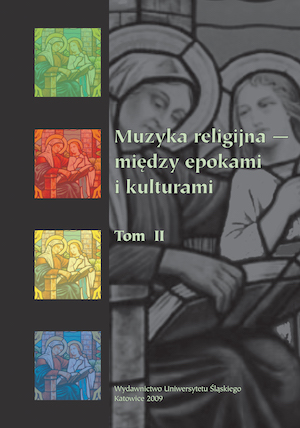Teozoficzne inspiracje w muzyce europejskiej XX wieku
Theosophical inspirations in the 20th century European music
Author(s): Renata Skupin
Subject(s): Music
Published by: Wydawnictwo Uniwersytetu Śląskiego
Summary/Abstract: “Theosophy” (wisdom, knowledge about God) defines various and difficult to reconcileChristian and non-Christian views. Thus, it entails an esoteric and developing from internalrevelation, interpretation of holy texts, conducted on the margin of the instruction of officialchurches. Theosophy is also related to a syncretic para-religious movement, based on the elementsof eastern religions, mainly Hinduism and Buddhism, institutionalized in line with thefoundation of the Theosophical Society in New York in 1875. Helena Pietrowna Bławatska,an immigrant from Russia practicing spiritism, magnetism and hypnosis, created the doctrineand co-founded the society in question and Henry S. Olcott, an American, wasa co-initiator of the movement.Theosophical inspirations seem to be, to a certain extent, the source of creative stimulafor the 20th century European composers. Theosophical interests are most frequently ascribed to such artists as Aleksander Skriabin, a composer from the Vienna school, ArnoldSchönberg, and Josef M. Hauer, as well as Giacinto Scelsi. Commentators and interpreters ofthese artists are usually not very precise as to the meaning hidden under the label of “theosophy”.The differences between the doctrines under the common name of “theosophy” aresubstantial. In the case of the majority of composers connected with theosophy, it was theiractual or only potential contacts with the members of H.P. Blawatska’s Theosophical Societythat constituted the main reason or argument for inscribing the sources of their creative inspirationsinto the theosophical context. What was decisive for the research conducted wasthe information on how authorized and not just hypothetical the opinions on the influencesof theosophy on the works of particular composers are. “The theosophical aspect” was alsodealt with from the perspective of the role the theosophical movement played in the historyof reception of the philosophy and religion of the East in the West.
Book: Muzyka religijna – między epokami i kulturami. T. 2
- Page Range: 217-227
- Page Count: 11
- Publication Year: 2009
- Language: Polish
- Content File-PDF

